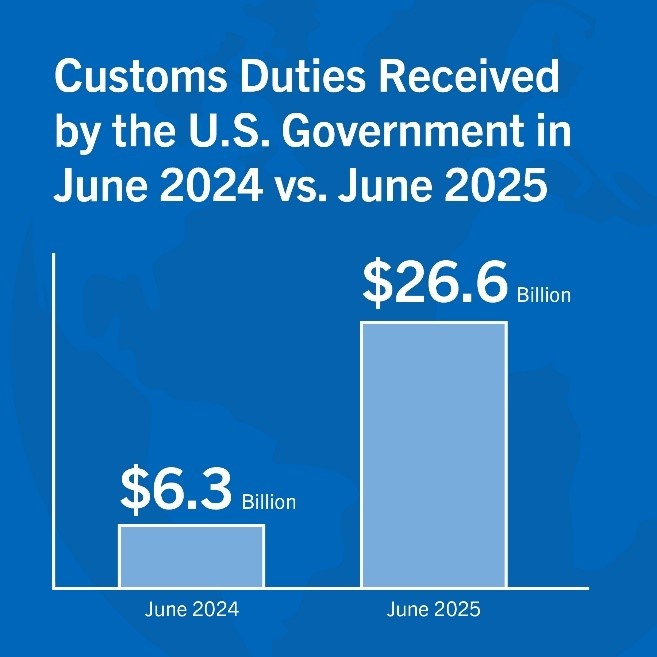President Trump’s shakeup of U.S. trade policy with its approach to tariffs is costing companies billions of dollars. In fact, in June of this year, importers paid the U.S. government customs duties (of which tariffs are a part) of nearly $27 billion[1], which is a dramatic shift from just over $6 billion paid in June of 2024 (before Trump returned to office).[2]

With the drastic increases in the costs of production due to tariffs, suppliers are looking to their contracts to see who bears tariff responsibility, and if it is the supplier, they are looking for ways to increase the price of their products to pass that burden on to the buyer. Meanwhile, buyers are looking to avoid being saddled with the additional tariff responsibility.
Contract Pricing Provisions
In conducting a review of your contracts to determine how increased tariffs will affect your business, one of the first places to check is the pricing provision. The pricing provision of a contract often indicates what is and is not included in the price. While sifting through the laundry list of expressly included items or excluded items (think freight, handling costs, packaging costs, insurance, or other similar charges), keep an eye out for an explicit reference to tariffs. Even if “tariffs” are not listed specifically in a pricing provision, whether the price includes tariffs or not could hinge on whether “taxes” are listed specifically, because tariffs are a type of tax.
If a supplier has agreed to fixed pricing in a contract and the pricing includes tariffs or taxes, the supplier would not be permitted under the contract to increase pricing of the product to pass on the tariffs, absent another mechanism (an example of such a mechanism is if the tariffs are imposed on the supplier’s raw materials, and the contract has pricing adjustment provisions for raw material cost increases, then this may be another avenue to pass along the tariff costs, as discussed below).
Pricing Adjustments and Economic Surcharges
Whether a supplier is contractually permitted to increase its pricing in the event of tariff hikes depends on the contents of the applicable contract as a whole. However, when determining who bears the risk of any increased tariffs, it is very important to examine the pricing adjustment and economic surcharge provisions.
A pricing adjustment provision sets forth how the price of a product changes during the term. Pricing adjustment provisions can be drafted very narrowly to identify a few certain reasons in which a supplier can increase price. On the other hand, pricing adjustment provisions are sometimes drafted broadly to include an extensive list of triggers that allow the supplier to raise prices—for example, increases in input costs, tariffs, or taxes.
Similarly, a contract may contain an economic surcharge provision instead of or in addition to a pricing adjustment provision. An economic surcharge provision is typically a temporary price increase to account for a changed circumstance, which like the pricing adjustment provision, could be increases in input costs, which would likely include the tariffs imposed on the sale of the raw materials to the supplier depending on how the provision is drafted.
Taxes Clause
Finally, the taxes clause is a key area of a commercial contract that the contract reviewer checks to determine which party is on the hook for increased tariffs, because this clause tends to clearly identify which party to the contract will be responsible to pay the taxes on the sale of the product.
The taxes clause of a contract is typically found in a stand-alone taxes section, but it could also be set forth as part of a broader pricing section. The construction of the taxes clause may specifically identify allocation of tariff costs, but it is possible that the clause will gloss over this targeted mention and simply state that taxes and other similar charges are the responsibility of a particular party. Given that tariffs are a form of tax, allocation of taxes will implicate tariff payment responsibility.
A common misconception about the taxes clause is that it addresses all the tax costs applicable to the product. In all actuality, the taxes clause usually only addresses taxes on the sale of the product at issue. As such, if increased tariffs are imposed on the raw materials or components used to make the product, the taxes clause may fail to address this cost increase, and a supplier’s profit could be squeezed if the contract also fixes product pricing, even if the taxes clause requires that payment of taxes on the product are solely the buyer’s responsibility.
In conclusion, with billions of dollars at stake, it is worth a careful review of your contracts to determine which party bears responsibility for the tariffs on the sale of the product itself, as well as for the tariffs on the sales of the inputs used to produce the product.
[1] Monthly Treasury Statement: Receipts and Outlays of the United States Government for Fiscal Year 2025 Through June 30, 2025, and Other Periods. U.S. Department of the Treasury, Bureau of the Fiscal Service, https://fiscal.treasury.gov/files/reports-statements/mts/mts0625.pdf.
[2] Monthly Treasury Statement: Receipts and Outlays of the United States Government for Fiscal Year 2024 Through June 30, 2024, and Other Periods. U.S. Department of the Treasury, Bureau of the Fiscal Service, https://fiscal.treasury.gov/files/reports-statements/mts/mts0624.pdf.




 />i
/>i
